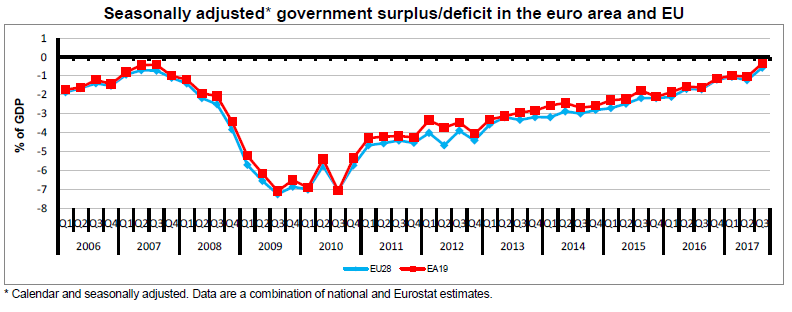Paolo Manasse, Dimitris Katsikas, (2018), “Economic crisis and structural reforms in Southern Europe: Policy lessons”, Vox, 1 February The basic ingredients of the policy prescriptions in response to the euro area debt crisis were quite similar across Southern Europe. This column explores the economic, political, and institutional factors that differentially affected the success of these prescriptions from country to country. Policy timing and sequencing, the balance between fiscal consolidation and …Read More
Why Economic Recovery Won’t Defeat Populism
Andres Velasco, (2018), “Why Economic Recovery Won’t Defeat Populism”, Project Syndicate, 25 January During the last few years, a lively debate has taken place between advocates of economic and political/social explanations of populism. The issue is far from settled, but even if the economic explanation is right, it does not follow that the current global recovery will make much of a political difference. Relevant Posts Dani Rodrik, (2018), «In Defense …Read More
Reserve Currency Blocs: A Changing International Monetary System?
Camilo E Tovar Mora, Tania Mohd Nor, (2018), “Reserve Currency Blocs: A Changing International Monetary System?”, IMF, 24 January What is the extent of currency diversification in the international monetary system? How has it evolved over time? In this paper, we quantify the degree of currency diversification using regression methods of currency co-movements to determine the extent to which national currencies across the world belong to a reserve currency bloc. We …Read More
The ever-rising labour shortages in Europe
Zsolt Darvas, Ines Goncalves Raposo, (2018),“The ever-rising labour shortages in Europe”, Bruegel, 25 January Historically high labour shortages in most central-eastern and north-western EU countries suggest that the immigration of central Europeans to north-west EU countries did not take away jobs from local workers on a significant scale. But as labour shortages now exceed their pre-crisis peak, several urgent measures must be considered to help to combat the problem. Relevant …Read More
The financial side of the productivity slowdown
Silvia Merler, (2018), “The financial side of the productivity slowdown”, Bruegel, 22 January Specifically: (i) firms that entered the crisis with weaker balance sheets experienced decline in total-factor productivity growth, relative to their less vulnerable counterparts after the crisis; (ii) this decline was larger for firms located in countries where credit conditions tightened more; (iii) financially fragile firms cut back on intangible capital investment compared to more resilient firms, which …Read More
Seasonally adjusted government deficit down to 0.3% of GDP in the euro area
Eurostat/Seasonally adjusted government deficit down to 0.3% of GDP in the euro area/24 January 2018 In the third quarter of 2017, the seasonally adjusted general government deficit to GDP ratio stood at 0.3% in the euro area (EA19), a strong decrease compared with 1.0% in the second quarter of 2017. In the EU28, the deficit to GDP ratio stood at 0.6%, a decrease compared with 1.2% in the previous quarter. These data are released …Read More
Why Greece Could Have Returned To Financial Markets Much Earlier
Theodore Koutsobinas,(2018), “Why Greece Could Have Returned To Financial Markets Much Earlier”, Social Europe, 22 January Α few weeks ago Athens persuaded private holders of about €30 billion in Greek debt to swap short maturity bonds for five new ones of longer maturity so as to improve market liquidity and push yield rates down before the country emerges from bailouts in August 2018. Actually, the 10-year bond dived swiftly below the …Read More
A few good (wo)men – on the representation of women in economics
Ines Goncalves Raposo, (2018), “A few good (wo)men – on the representation of women in economics”, Bruegel, 15 January Last week, the American Economics Association Annual Meetings held a session on Gender Issues in Economics and later announced that a new code of professional conduct is in the pipeline. In this blogs review we revise the recent contributions on female representation and perception in economics. Relevant Posts Tingyun Chen, Jean-Jacques Hallaert, Alexander …Read More
Inequality and Poverty across Generations in the European Union
Tingyun Chen, Jean-Jacques Hallaert, Alexander Pitt, Haonan Qu, Maximilien Queyranne, Alaina Rhee,Anna Shabunina,Jérôme Vandenbussche,Irene Yackovlev, (2018), “Inequality and Poverty across Generations in the European Union”, IMF, 24 January This SDN studies the evolution of inequality across age groups leading up to and since the global financial crisis, as well as implications for fiscal and labor policies. Europe’s population is aging, child and youth poverty are rising, and income support systems are often better equipped to address …Read More
The Inclusive Development Index 2018
World Economic Forum, (2018), “The Inclusive Development Index 2018”, 22 January The Inclusive Development Index (IDI) is an annual assessment of 103 countries’ economic performance that measures how countries perform on eleven dimensions of economic progress in addition to GDP. It has 3 pillars; growth and development; inclusion and; intergenerational equity – sustainable stewardship of natural and financial resources.The IDI is a project of the World Economic Forum’s System Initiative …Read More





